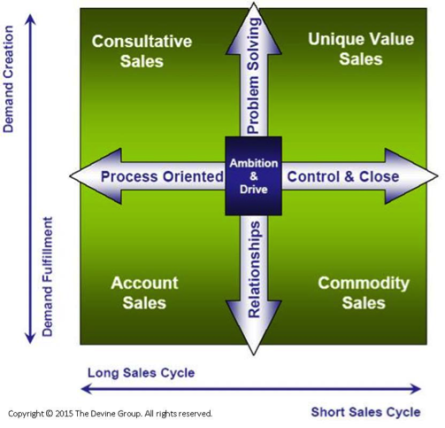
Is your salesforce not performing? Too much turnover? Are your best sales people leaving for greener pastures? Our labor marketing and workplace culture for salespeople is changing, and organizations that are able to tap into this newly engaged, passionate workforce stand to gain market share and success for years to come.
Let’s talk about hiring. Did you know 40-60% of those that have applied for a job already knew that they did not meet the qualifications? They either met “most” of the qualifications or simply just wanted to work for that company. Hiring a salesperson can be a tricky process to navigate with all sorts of hidden landmines, but there is no reason to hire a bad sales person.
Assessments and pre-screenings prove to shorten the interview process and filter out undesirable applicants very quickly, saving considerable time for those involved in the hiring process. Assessing at the beginning of the hiring process will provide you with priceless insight before you even get face-to-face, insight like, “Can they sell?”
Sales is a very broad term. Your candidates will consistently tell you they can sell. The first question you need to figure out is, “can they really sell?” and then the second question is, “will they sell your product according to how your product needs to be sold?”
At the Devine Group, we have developed a model where your candidates can be measured against four types of selling. Our assessments compare the strengths and weaknesses of each candidate to competencies being evaluated for your selling model. Check out our Sales Quadrant Model in the graphic. Keep in mind, Ambition & Drive is required for all sales types for this is the internal motivation required for success and cannot be taught.
Account Sales have long sales cycles and require demand fulfillment. These sales people sell repeatedly to the same accounts. They focus on cross-selling and up-selling existing clients, however, there could be a small new business requirement as well. Essentially, they build relationships and manage a territory or group of accounts. Commodity Sales are short cycles and also demand fulfillment. This type is selling is more centered on volume rather than solely profit. These sales people are able to quickly bond with a prospect and endure a great deal of rejection. It is best for Commodity Sales people to excel in Ambition & Drive and Control & Close skills. Consultative Sales have long cycles and they are responsible for demand creation. These are relational, prospectors who are process oriented and problem solvers for the client. Finally, we have Unique Value Sales with short cycles and demand creation. These are your hunters who can control and close sales quickly in a prospecting environment.
By administering the correct sales assessment, you’ll quickly uncover the highest potential candidates, saving you time and money – and then confidently move on toward the best fit for the company.
What happens when your sales person is performing the wrong type of sales? For instance, you encounter a true Account Sales type of person that needs to be selling from the Unique Value portion of the quadrant. Then, they may avoid prospecting for new business. Furthermore, sales people scoring strongly in Consultative Sales but should be selling from the Unique Value quadrant would typically lengthen or complicate a generally short and straightforward sales. Of course, this is detrimental to their sales numbers and your ultimate success. Have you ever had a good salesperson who just wouldn’t prospect or kept dragging out the relationship?
Strong employee fit and engagement must start at the beginning of their employment. Most people do not change their style easily. With an introduction of clear job models and hiring assessments targeted toward finding candidates, who match not only in terms of skills and abilities but also who fit into the culture, can reduce hiring mistakes and disengaged employees. Armed with their assessment information upon hire, their development can be continuously pursued by not only the individual’s growth, but also by their manager. You can also continue the assessment process to measure their performance and engagement throughout the employee’s lifecycle.
The Devine Group assessments can be used from hiring and selection to separation surveys to create efficiency, support employee development, and bolster engagement. Contact us for more information.

